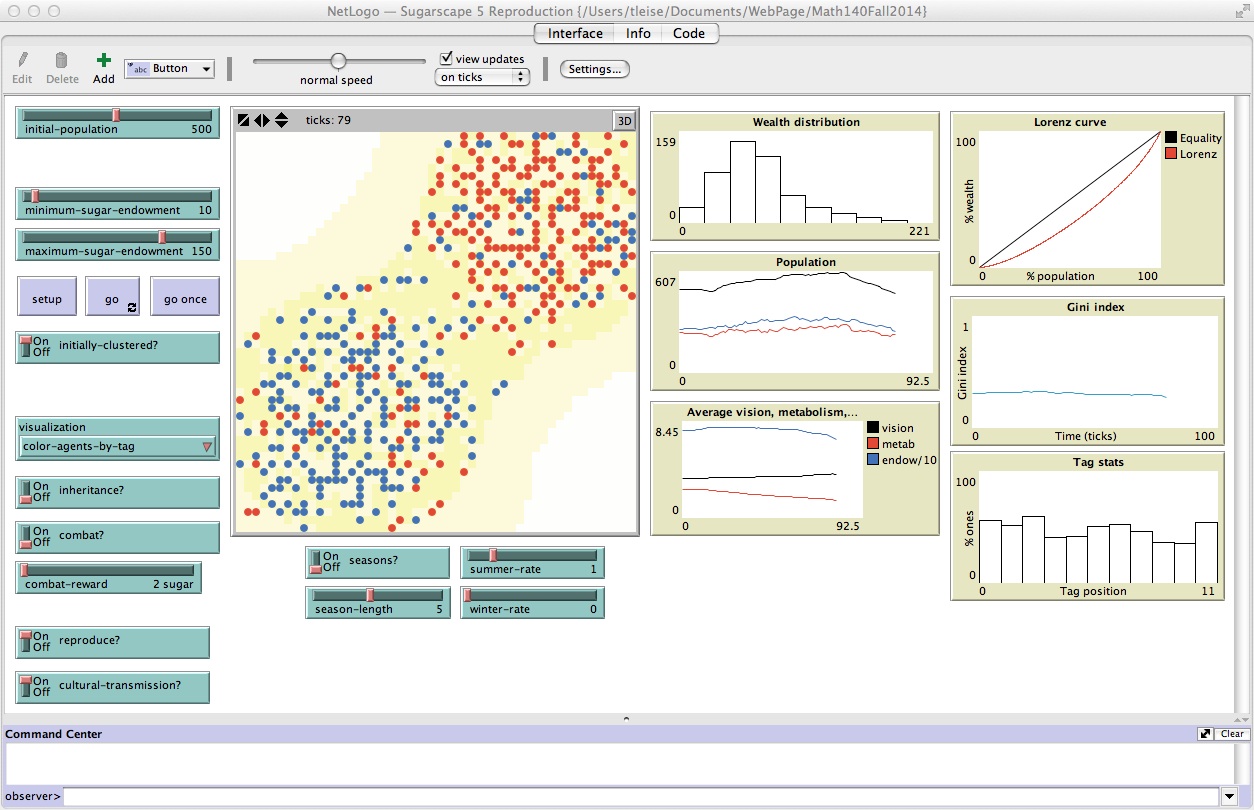Attendance: You are
to be in class and to be there on time. Cooperative learning is more
effective
and more fun than struggling through material on your own. We will spend a lot of class time actively discussing readings and working on models, so it's important that everyone be in class and participating.
Grading: Your course grade will be based on in-class participation and contributing to discussions (10%),
weekly assignments like forum posts on the readings and occasional short assignments (10%), and project reports and presentations (80%, split over 3 projects). There will be no exams.
Intellectual Responsibility:
Please follow the guidelines of the honor code. Getting help from me and discussing ideas with other students is perfectly fine for individual projects, but you must do the actual work of implementing the model and writing the report. For group projects, do your fair share and fully contribute to the group's efforts, working collaboratively. If you use any code from an existing model or ideas found in a paper or on the web or in a book, always cite the source. If you are unsure what agrees or
does not agree with the precepts of intellectual responsibility in this
course, feel free to talk to me about it.
In particular, I would caution you against emailing to other students (except those in your group for group projects) any code or things you have written, as that unfortunately often leads to plagiarism.
Inclusion and Accessibility: I strive to make all my courses welcoming to all students. I am happy to discuss your learning needs and strategies to best support your academic success. If you have a documented disability that requires accommodations, please register with Accessibility Services at the college, and contact me to let me know what accommodations you will need for this course. Whenever possible, please give me at least two weeks advance notice to implement these accommodations. |
